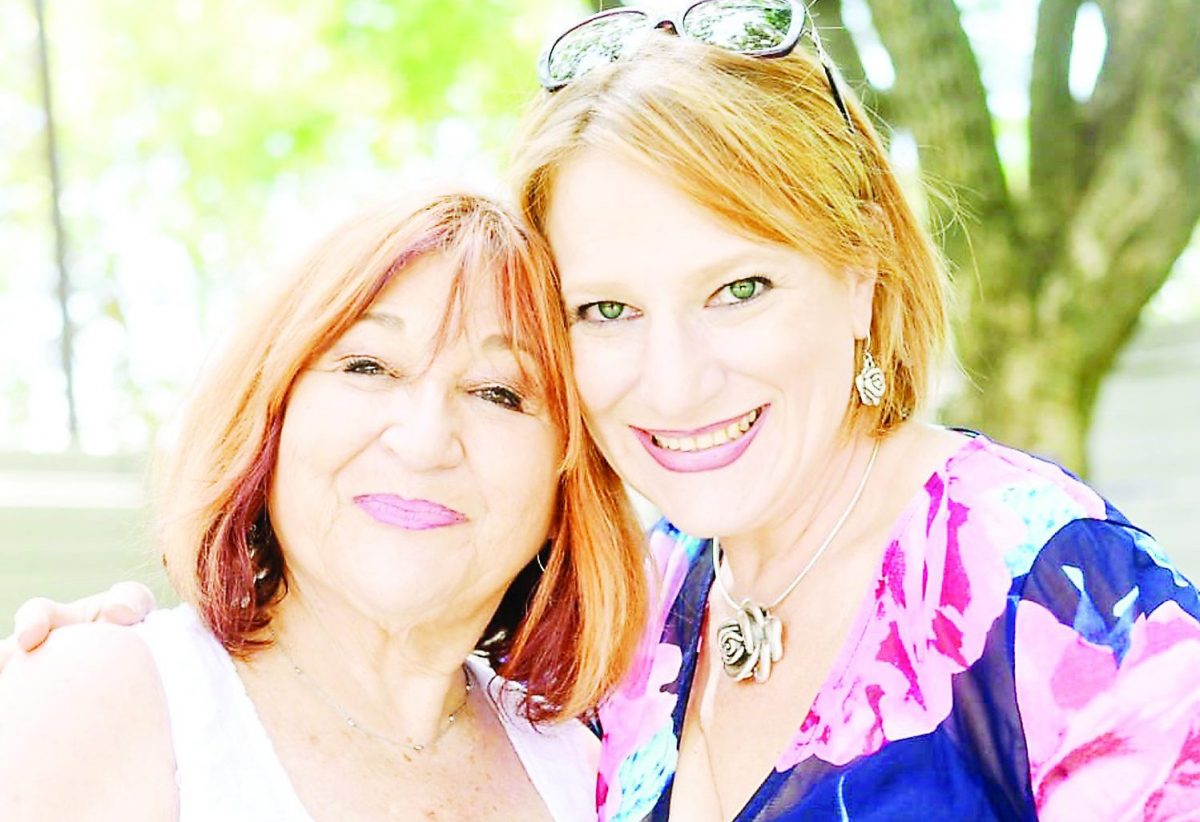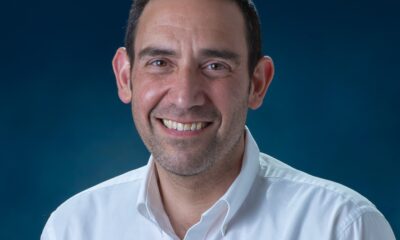
Featured Item

‘It’s my fault’ – living with the guilt of passing on the virus
Published
4 years agoon
In a heart-wrenching post on the Joburg Jewish Mommies Facebook group last week, Tracy-Lee Langlois shared the tragedy of having passed COVID-19 on to her mother, Claire Purto, who subsequently passed away.
Langlois is far from alone in unintentionally passing coronavirus on to a loved one who passed away, but for many, it causes immense feelings of guilt.
“No-one wakes up in the morning and says, ‘Today I want to cause death and destruction to my family’,” said local psychologist Sheryl Cohen. “The tendency to blame and shame the self is a kind of anger turned inwards. The source of that anger is the wish to gain control over overwhelming emotions.”
Langlois told the SA Jewish Report that her parents had recently sold their home, and had moved in with her about two weeks before. “We planned to build a cottage for them on our property so they could enjoy their retirement years with their grandchildren.”
But Langlois contracted COVID-19, and by the time she realised she was infected, around 7 July, her whole family had caught it, including her mother, who was 73. “She was young at heart. Although she had some health issues, she was doing well a week into contracting the virus. However one morning, she woke up feeling very light-headed.”
Hatzolah was called, and her blood pressure was low, with blood tests showing inflammation markers slightly elevated. She also had extreme nausea. Hatzolah monitored her every day, and her oxygen levels fluctuated. She was eventually admitted to hospital, and put on oxygen. This included frightening moments for Langlois, such as when her mother called her around 01:00 saying she wasn’t able to breathe and couldn’t get the nurse’s attention. The next evening, she was taken to high care.
Early the next morning, Langlois missed a call from her mother. When she phoned back, they couldn’t hear each other, and when she tried to call again, the phone kept going to voicemail. Langlois called the ward and was told they were dealing with an emergency.
“I just knew it was my mother,” she said. “When the clinical assistant eventually phoned, they confirmed it, and said my mother had to be ventilated. The prognosis wasn’t good, and we had to take it hour by hour.”
Langlois called her rabbi, her doctor, and her sister in Australia. They prayed for a miracle while her mother was in the intensive care unit. Her young daughter asked to send a voice note of her singing to her grandmother, and when it was played for her, “the doctor said that her eyes flew open and stayed open the entire time the voice note was playing”.
A rollercoaster ride of emotions followed as her mother entered a “cytokine storm”, when the immune system essentially attacks the body as it attempts to fight the virus. In spite of the doctors’ best efforts, her mother passed away on 24 July.
“I feel guilty,” Langlois said, “but I also know how careful I was. The thing is, once you’re sick, you’ve already passed it on, and there are very real consequences. If it can happen to someone like me who is so careful and tries so hard, it can happen to anyone.”
As someone who has faced tragedy before when her first husband died in a car accident 11 years ago, she has come to believe that “you can’t question it. Everything is as it’s meant to be, even if we don’t think it’s right or fair.”
How do you cope with the knowledge that you have passed the virus on to a loved one? Said clinical psychologist Ilana Edelstein, “A helpful lens through which we can understand the social impact of the virus is a term which is new to most of us: ‘moral injury’. This is a transgression or perceived transgression of one’s own, and can manifest as guilt, shame, the inability to forgive oneself, demoralisation, and in worst-case scenarios, self-harming behaviour.
“Moral injury can happen both from action and inaction, or other people’s actions or inactions. People may feel that they could have done more to protect a family member, or may feel that they are being asked to make impossible choices that will cause conflict between their morals and the reality of the pandemic,” she says.
“Moral injury is a type of invisible wound. It’s distinct from the more widely recognised condition of post-traumatic stress disorder or survivor’s guilt. It’s an infliction of conscience, sometimes described as a ‘wound to the soul’. It’s important for people to realise that if they are feeling huge remorse, then they are likely to have huge compassion, and if they have huge compassion, they wouldn’t willingly have wanted to harm another person.
“Survivors often overestimate their sense of personal responsibility for a negative event. We need to help the person to accurately appraise their role and to examine whether they purposefully did something that was wrong. What was their intention?
“It helps to look at the limited options they really had, and how they may have done their best in an untenable situation. We’re all in this together, and are all potentially responsible for the harm of others. We can’t blame others and point fingers. We need to recognise the profound dual pain such a person might be experiencing – the loss of a loved one and feelings of guilt. It’s important to recognise that your loved one wouldn’t want you to get into self-destructive mode.”
To offset the effects of moral injury, Edelstein advises, “It helps to create a routine. This is especially important given that there is so much we currently can’t control. Don’t be alone – reach out for support and offer virtual support. Try not to dwell in a negative narrative. Look for positives.”
Cohen agrees. “Be kind to yourself. This is hard enough without the guilt. The loss of a loved one leaves us all feeling helpless and vulnerable. The human psyche likes to balance helplessness and power in order to create ‘psychic-equilibrium’. One example of that power is the thought that ‘I could have stopped it’ or ‘I’m to blame’. Why? Because it’s easier to blame oneself and have a sense of control than to sit with the pain of loss and the intense helplessness that a loved one has died.
“A more helpful alternative to ‘psychic-equilibrium’ is to balance the helplessness with the power of what you can do positively in this traumatic time of loss. Perhaps it’s taking care of your family; perhaps it’s making people aware of your story; perhaps it’s planting a tree in memory of your loved one. Whatever it is, focus on the power that comes with gain rather than the blame that comes with loss. Victimising yourself is destructive. Building the world in the memory of others is constructive.”










